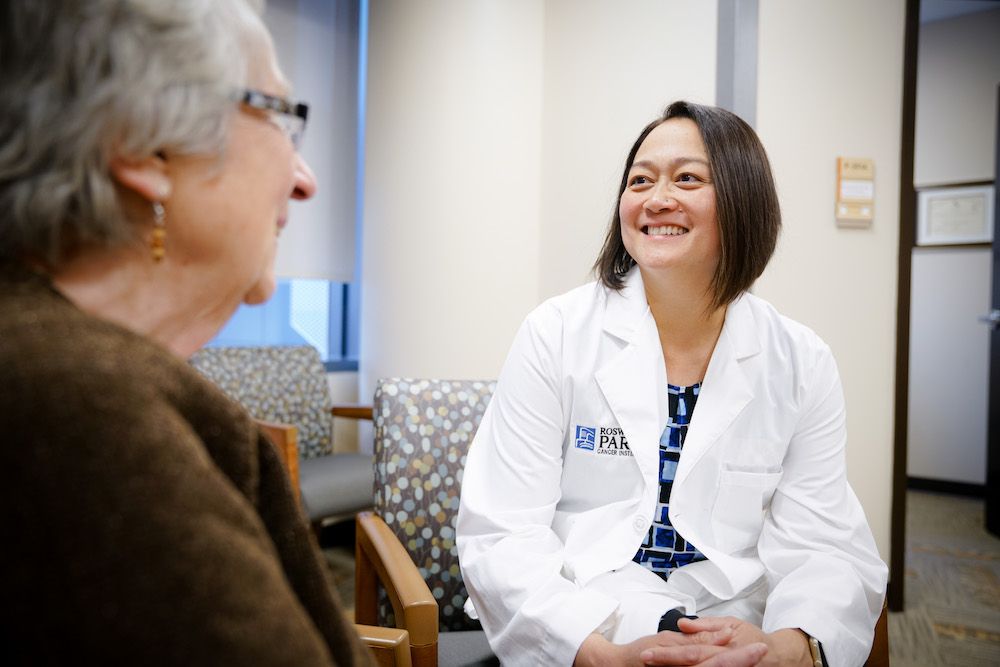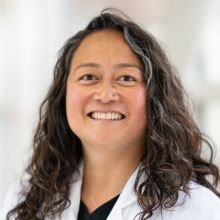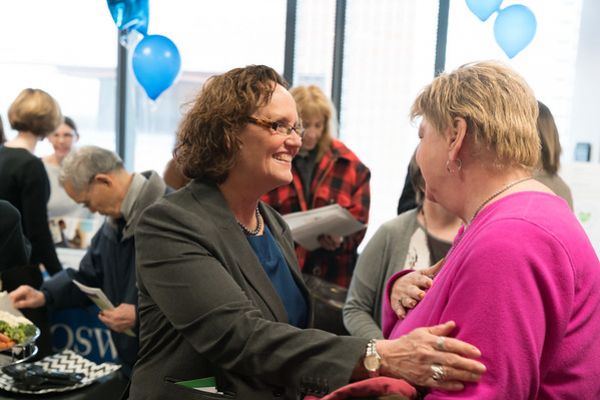When treatment's done, a 'road map' for your life ahead
For many cancer patients, the end of treatment is a time to celebrate. But cutting loose from a routine schedule of care and close monitoring can also bring fear, anxiety and uncertainty about what happens next: How often should I see my primary care doctor? What are the potential long-term side effects of the treatments I received? Should I still get mammograms or PSA tests or colonoscopies?
A Survivorship Care Plan (SCP) helps answer those questions, serving as guide for staying healthy as you begin your new life as a survivor. “We think of it as a road map,” says Tessa Faye Flores, MD, Roswell Park Comprehensive Cancer Center’s Medical Director of Cancer Survivorship and Screening. “When people are done with their treatment, I ask them to see us at least one time in the Survivorship and Supportive Care Center so we can create a plan for them.”
It’s good advice. A report from the Health and Medicine Division of the National Academies, “From Cancer Patient to Cancer Survivor: Lost in Transition,” recommends that “patients completing primary treatment should be provided with a comprehensive care summary and follow-up plan that is clearly and effectively explained.”
An SCP provides details about your diagnosis and treatment — for example, the total amount of radiation and the specific chemotherapy drugs you received. That information will be very important when your medical care shifts from your oncology team back to your primary care provider. It can alert your doctor to the side effects that may occur down the road, making it easier to identify and address those problems or even help you avoid some of them completely.
“For example, the chemotherapy drugs Adriamycin® and cyclophosphamide can increase the risk of developing acute myeloid leukemia (AML) later on,” explains Dr. Flores. “If a patient received those drugs, we would recommend that her primary care physician monitor her for AML. If she had fatigue and bruising, we’d want her doctor to add AML to the list of possible causes.”
A Survivorship Care Plan includes:
- Specific information about your diagnosis
- A list of your treatments — including surgery, radiation and all medications — and their potential side effects
- The results of any genetic testing you had
- The names of your Roswell Park doctors
- Recommendations for future tests (such as blood work, bone density tests, mammograms and colonoscopies) and how often they should be done, plus a list of the physicians outside Roswell Park who should receive this information
- A schedule for your annual follow-up visits at Roswell Park
Roswell Park's Survivorship Program
Our Survivorship Program brings together many of our clinical and supportive services, as you face forward and learn to embrace a new normal.
Learn MoreRoswell Park’s Survivorship and Supportive Care Center takes long-term care a step further — for example, asking survivors about their smoking history and providing high-risk lung cancer screening if they qualify. The center also offers services to address fatigue, neuropathy, ongoing pain and other physical side effects, plus nutrition advice, massage therapy, assistance with financial and legal matters related to your cancer diagnosis, support for anxiety and depression, and other programs geared to the special needs of cancer survivors. You can set up an appointment for a consultation by calling 716-845-4800.




